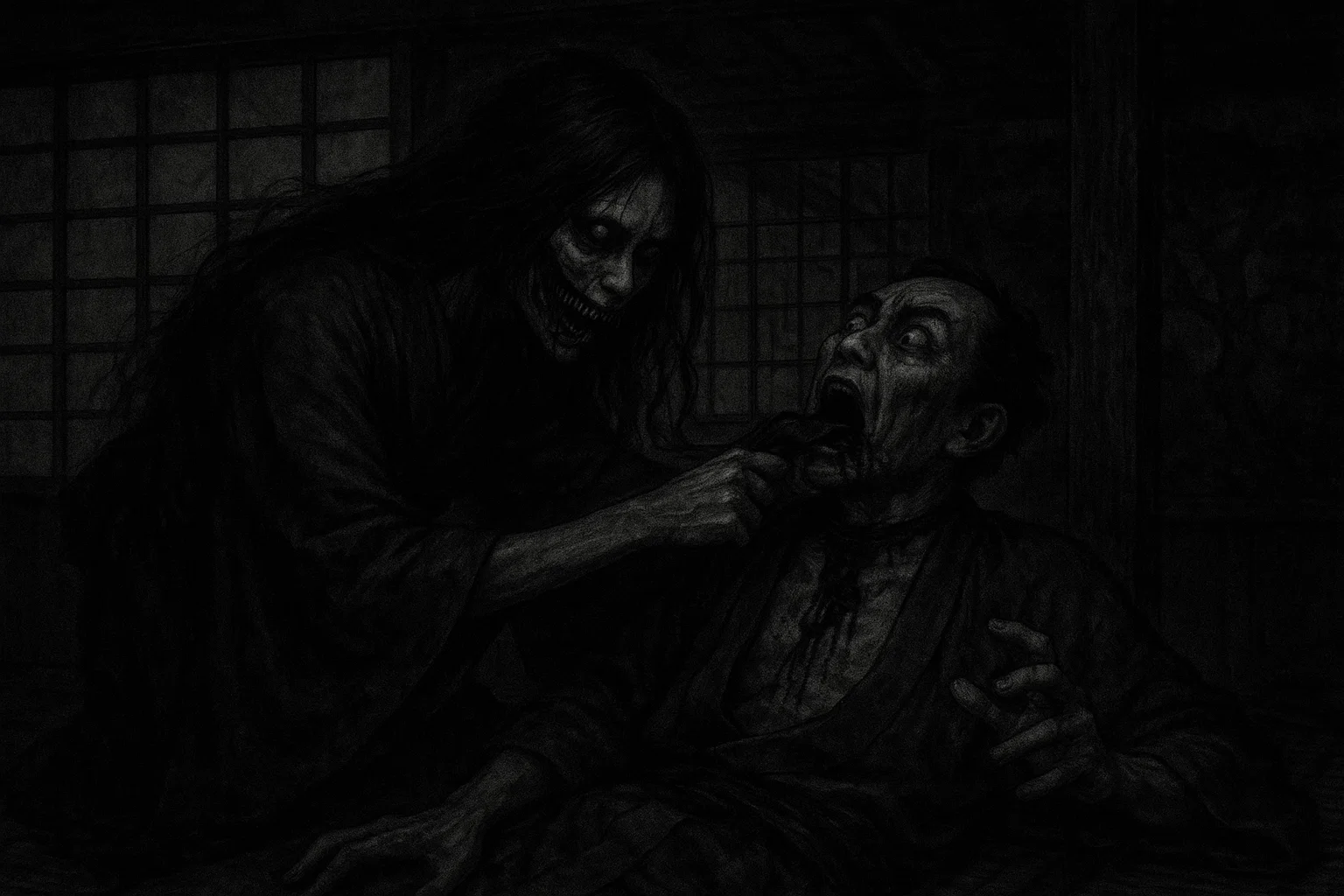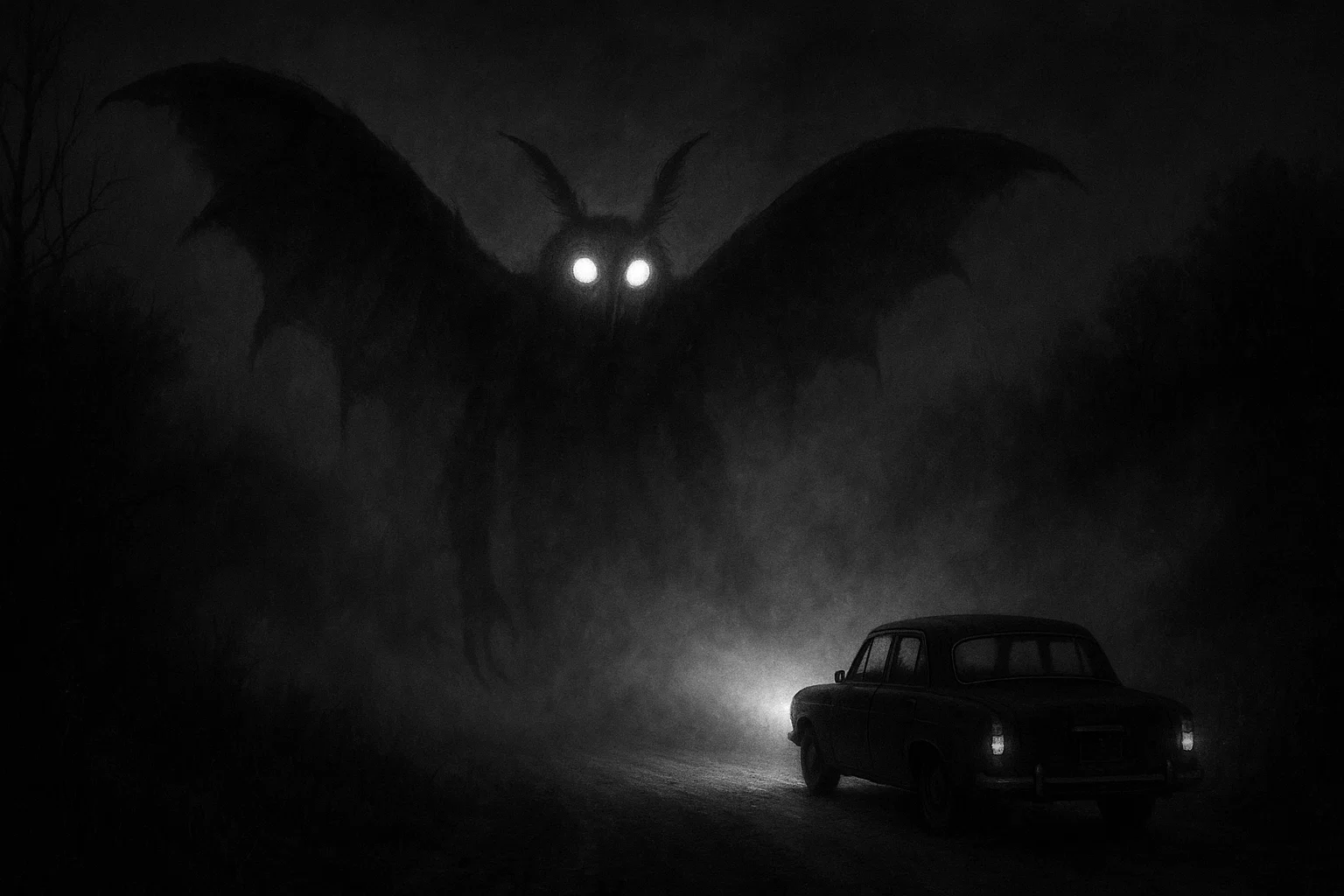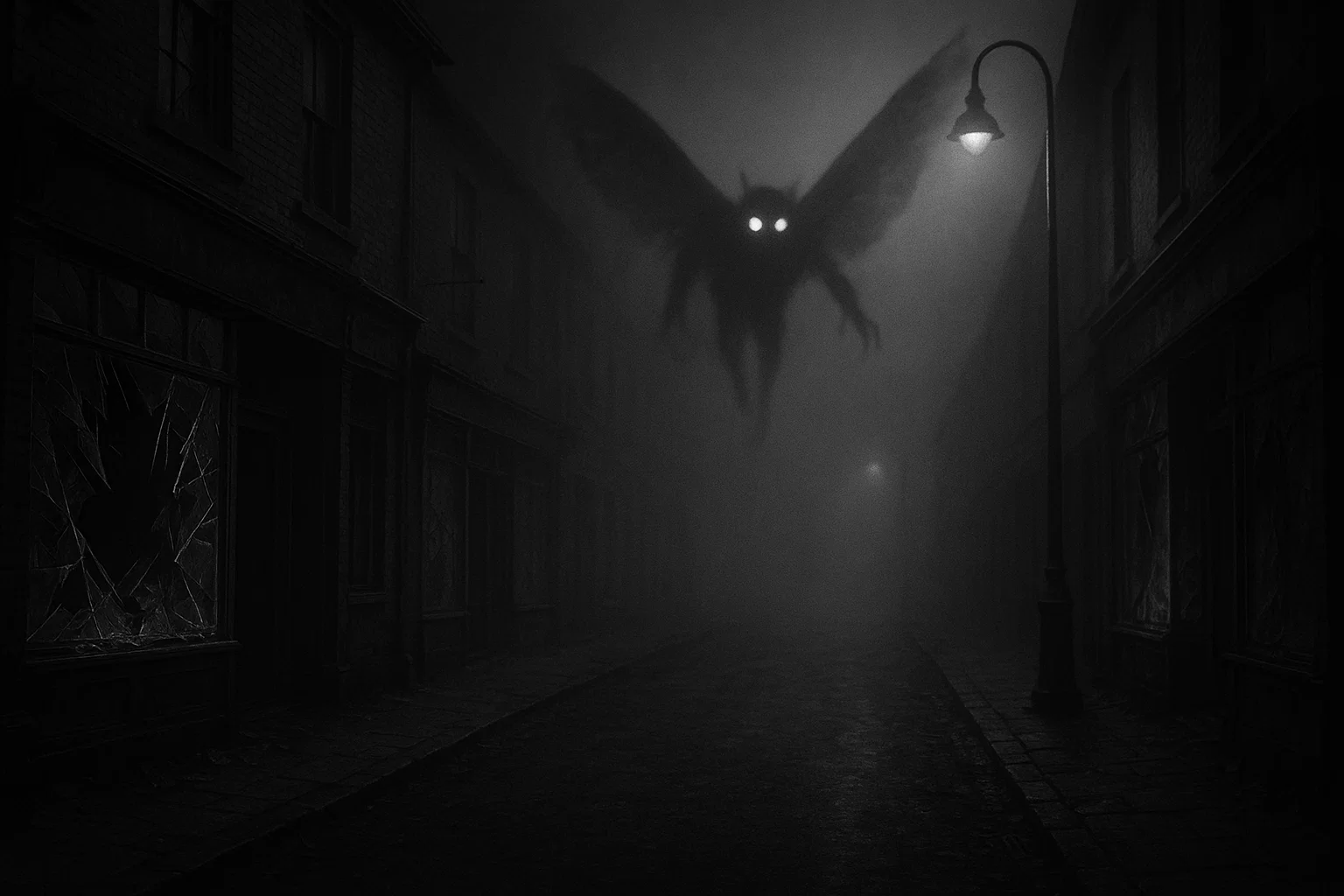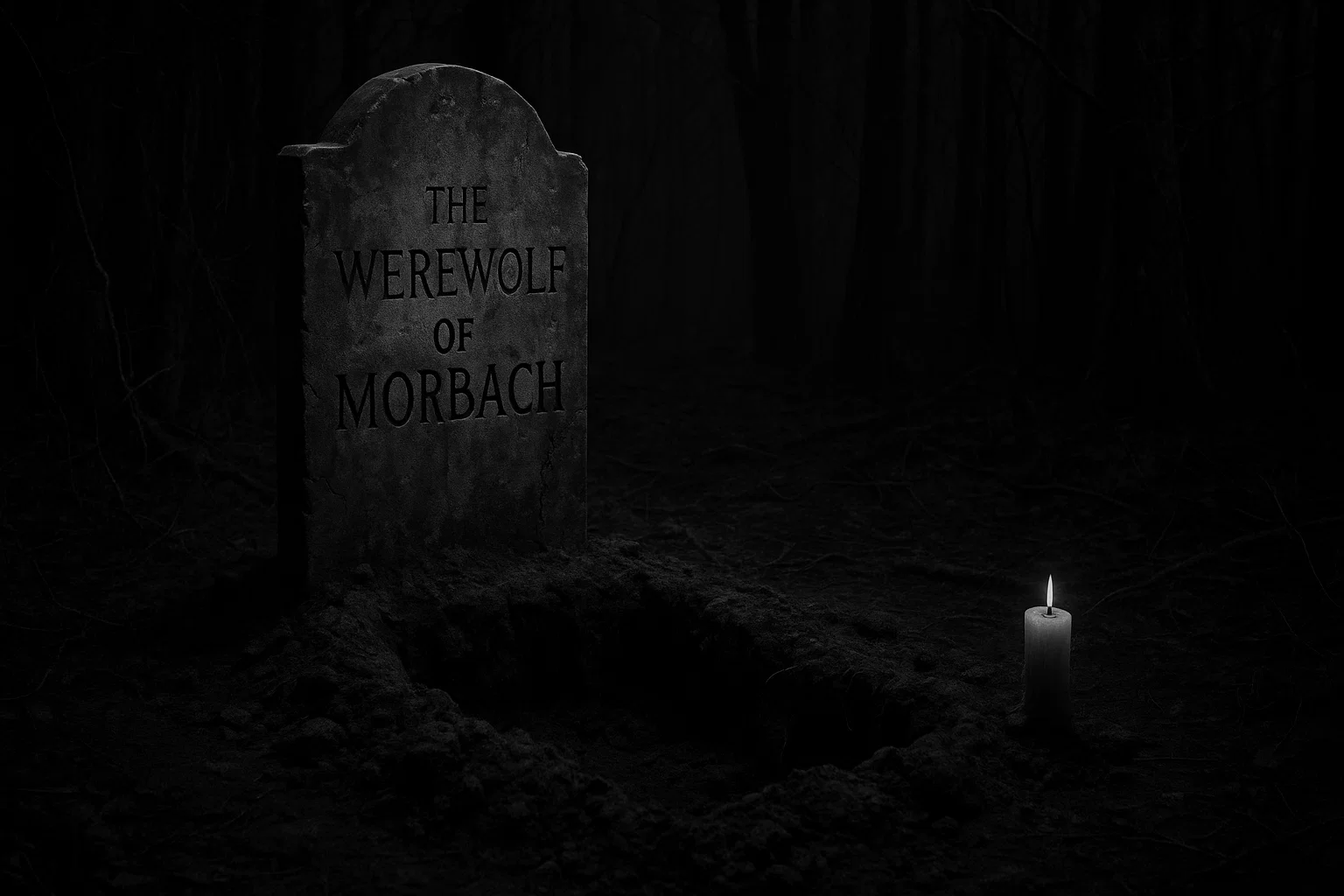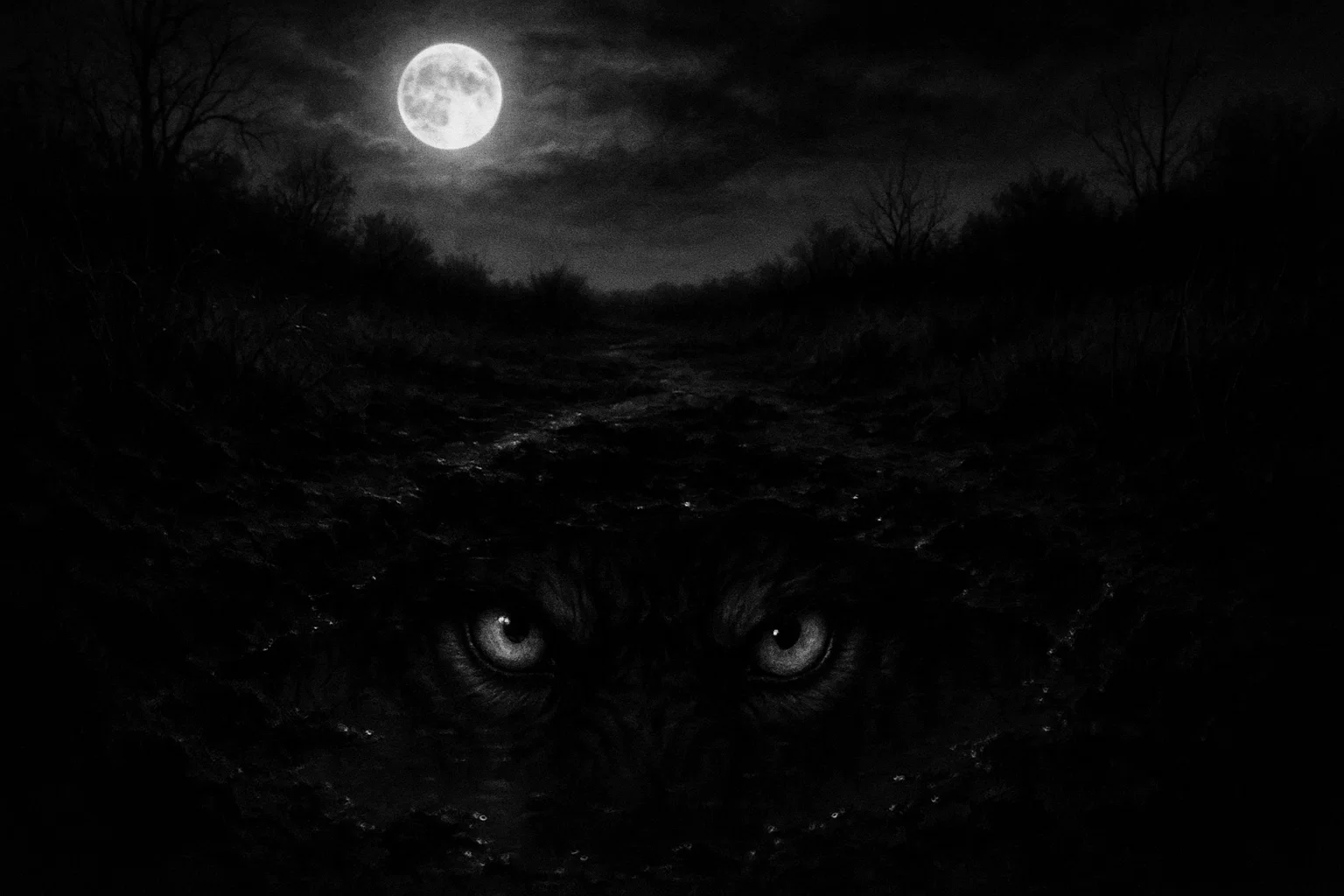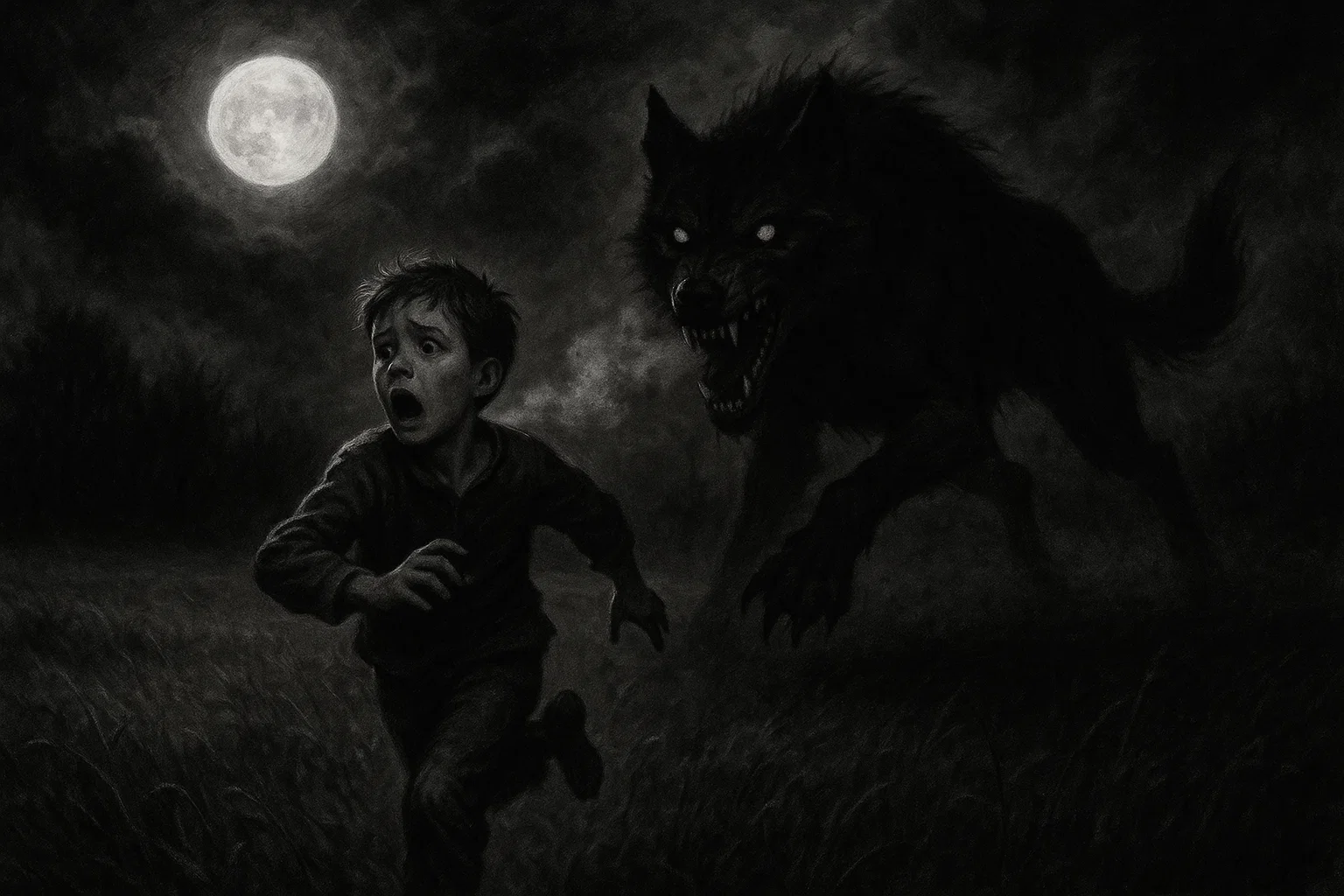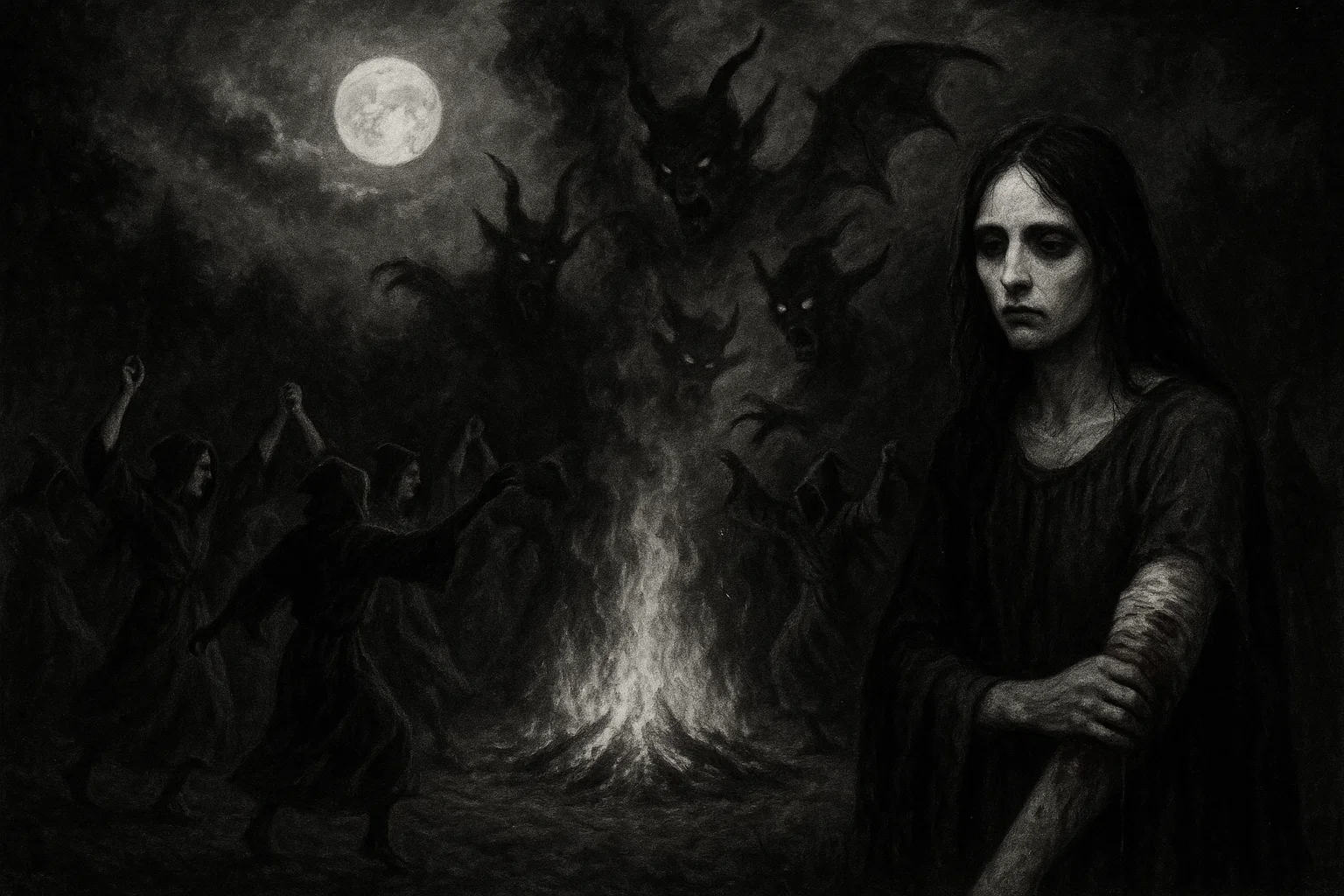Immerse yourself in a blood-chilling horror story set in the shadowed heart of Edo-period Japan, where the vengeful spirit of Kuchisake-onna, the Slit-Mouthed Woman, weaves a creepy story of betrayal and retribution. This scary ghost story unfolds in a rigid society bound by honor, where a young woman’s beauty becomes her curse, drawing jealousy and lies that ignite a gruesome fate. As a malevolent onryō, her wrathful return unleashes a terrifying ghost story that haunts misty valleys and dark alleys, gripping readers with dread and suspense. Perfect for fans of spooky tales and Japanese horror stories, this ghost story will leave you trembling at the question: “Am I beautiful?”
The Edo period, Japan, 1650. The village of Mizutani nestled in a fog-choked valley, its thatched roofs sagging under the weight of ceaseless rain. Pine-scented air mingled with the sour reek of mud and fear, a constant reminder of the land’s harsh embrace.
This was a world carved by Bushido, the samurai code, where honor was a blade’s edge, and betrayal was a wound that festered through generations. Society was a merciless hierarchy: peasants broke their backs in rice paddies, merchants skulked in shadowed stalls, and samurai lorded over all, their katanas symbols of divine authority.
Honor was not just virtue but survival, and shame was a poison that seeped into bloodlines. For women, life was a tighter noose—bound to silence, obedience, their beauty a commodity, their fidelity a contract sealed in blood. To falter was to invite ruin, and in Mizutani, ruin wore a human face.
Ayaka, at 19, was a vision that haunted the village. Her skin was pale as frost, her eyes deep pools of obsidian, her smile a fleeting warmth that stirred hearts and envy alike.
Daughter of a fallen merchant, her family’s honor hung by a thread, salvaged only through her marriage to Hiroshi, a samurai of middling rank.
At 32, Hiroshi was a man of granite—broad-shouldered, his face scarred from battles, his heart a furnace of suspicion. His loyalty to his lord was ironclad, but his love for Ayaka was a festering sore, poisoned by the whispers of a village that coveted her beauty and resented her grace. To him, she was both prize and peril, a treasure he guarded with a jealousy that bordered on madness.
Ayaka’s existence was a crucible of duty. She rose before dawn, her hands chapped from scouring Hiroshi’s armor, her knees raw from kneeling to serve his meals. The villagers shunned her, their eyes sharp with envy, their tongues sharper still. Women sneered, calling her vain; men leered, their gazes stripping her bare.
Her only refuge was the river, where willows wept over the water, and her reflection offered a fleeting escape from scrutiny. There, she could breathe, her heart steadfast despite Hiroshi’s coldness, her loyalty unshaken by the village’s scorn.
But beauty in Edo Japan was a double-edged blade, and Ayaka’s drew blood without her wielding it.
Among the villagers was Taro, a young merchant’s son of 24, whose charm was a venomous facade. Taro was lean and sharp-featured, his eyes glinting like a snake’s, his smile a practiced lure. He thrived on power, weaving lies as easily as he bartered silk.
When he saw Ayaka fetching water at the river, her grace ignited a hunger in him—not love, but possession. He began to court her, his gifts insidious: a jade hairpin, a bolt of crimson silk, a lacquered comb left at her door. Each was a snare, meant to bind her to him.
Ayaka, polite but firm, refused them, returning each gift with a bow, her voice steady: “I am married, Taro-san. My heart belongs to Hiroshi.”
Taro’s desire curdled into obsession. He followed her to the river, his footsteps silent, his eyes tracking her like prey. One evening, as twilight bled into the valley, he cornered her under the willows, his voice honeyed but edged with menace.
You May Also Like: My Wife Likes To Play With Me | Horror Story
“You think you’re above me, Ayaka? No woman refuses Taro.” He lunged, his hands grasping her wrists, his breath hot against her neck.
Ayaka fought, her heart pounding, and drew a small knife she carried for cutting reeds. She slashed, the blade catching his cheek, blood welling in a crimson line. Taro recoiled, clutching his face, his eyes blazing with rage.
“You’ll pay for this,” he hissed, as she fled, her kimono torn, her breath ragged.
Taro’s wound was shallow, but his pride was gutted. A man like him, who thrived on control, could not abide defiance. He wove a web of lies, his tongue a serpent’s, spreading tales of Ayaka’s infidelity. He claimed she met a lover by the river, that her smiles were proof of betrayal, that she mocked Hiroshi’s honor.
The village, eager for scandal, devoured his words. Women whispered in the market, men smirked over sake, and soon the entire valley buzzed with the rumor: Ayaka was unfaithful, her beauty a mask for deceit. Taro’s lies were meticulous, his vengeance a slow poison, and he reveled in the chaos, his scarred cheek a badge of his vendetta.
Hiroshi heard the whispers, each one a dagger to his pride. His comrades taunted him at the lord’s manor, their laughter sharp: “Your wife strays, Hiroshi. Can’t you tame her?”
Sake fueled his paranoia, his dreams plagued by visions of Ayaka’s laughter in another’s arms. He watched her, his eyes cold, searching for guilt in her every move. Ayaka sensed the change, his silence heavier, his touch rougher.
She pleaded, her voice trembling, “Hiroshi, I am faithful. The village lies. Taro spreads these tales because I refused him.” She knelt before him, her hands clasped, tears staining her cheeks. “I go only to the river, to fetch water, to think. My heart is yours.”
Hiroshi’s face was stone, his heart a battleground of doubt and rage.
“You lie,” he growled, shoving her away. “The entire village speaks of your shame. You make a fool of me.”
Ayaka crawled to him, grasping his sleeve, her voice breaking: “Please, husband, believe me. Taro tried to force himself on me. I cut him to escape. He seeks revenge.”
She bared her soul, recounting the assault, the knife, the lies, but Hiroshi’s jealousy was a beast that fed on suspicion, not truth. The village’s chorus drowned her words, and Taro’s cunning ensured her pleas fell on deaf ears.
You May Also Like: The House That Feeds | Horror Story
One storm-ravaged night, Hiroshi’s rage erupted. He followed Ayaka to the river, his katana heavy, the rain masking his steps. She stood under the willows, alone, her kimono clinging to her frame, her humming a fragile defiance against the storm.
To Hiroshi, her solitude was proof of guilt, her beauty a taunt. He roared from the shadows, “Traitor!” and seized her, his fingers bruising her arms. Ayaka screamed, “Hiroshi, no! I am innocent!” but he dragged her through the mud, her pleas lost to the thunder. The village slept, its doors barred, as he hauled her to their home, a low wooden structure lit by a flickering lantern.
Inside, Hiroshi threw Ayaka to the floor, her kimono ripping, her hair a tangled veil.
“You shame me!” he bellowed, his breath sour with sake, his eyes wild with madness.
She sobbed, crawling back, “I am faithful, Hiroshi! Taro lies! He attacked me!”
But his paranoia was a fire, consuming reason. He drew a tanto, its blade a sliver of moonlight, and loomed over her.
“Your beauty is a curse,” he snarled. “Let it be your ruin.”
Ayaka’s scream pierced the air as he grabbed her face, his fingers digging into her jaw, bruising bone. The tanto slashed, swift and brutal, carving her mouth from ear to ear. Blood gushed, a crimson flood that soaked her neck, her chest, the tatami.
The skin tore like silk, her lips splitting, her teeth bared in a grotesque grin. Pain seared through her, a blinding inferno that drowned her senses. Hiroshi slashed again, deepening the wound, the blade scraping cheekbone, severing muscle.
Her face became a ruin, flesh flapping, blood spurting in rhythmic pulses, pooling beneath her. She clawed at him, her nails raking his wrists, but he pinned her arms, his weight crushing her chest.
“Who desires you now?” he taunted, his voice a venomous hiss. He drove the tanto into her shoulder, twisting it, the crunch of bone echoing as she writhed, her screams now gurgles, blood bubbling in her throat.
He carved her arms, slow, deliberate cuts that peeled skin like parchment, exposing raw muscle. Her thighs followed, the blade slicing deep, tendons snapping, blood streaming in rivulets. He broke her fingers, snapping each with a sickening crack, her hands useless, her body a canvas of torment.
The lantern flickered, casting shadows that danced like demons, as he tortured her for hours. He stabbed her abdomen, shallow cuts that let her bleed slowly, prolonging her agony. Her eyes, once radiant, dulled, her breath shallow, but she clung to life, her will a dying ember.
Hiroshi’s rage waned, his hands slick with her blood, his tanto dripping. He stood, panting, and spat on her crumpled form.
“Die, whore,” he muttered, leaving her in the dark, the rain’s roar her only companion.
Ayaka’s life ebbed, each breath a labor, her blood a black pool. As death claimed her, a vow burned in her soul: vengeance. Her spirit, warped by pain and betrayal, refused the afterlife.
Something dark—perhaps a yōkai, perhaps the gods’ cruel jest—answered her call. She rose as an onryō, a vengeful ghost, her mutilated face a permanent grin, blood oozing from wounds that never healed. Her kimono, once cerulean, was crimson, clinging to her translucent skin.
You May Also Like: The Curse of Nam Koo Terrace | Horror Story
Her eyes blazed with malevolent fire, her movements silent, her sickle—rusted but razor-sharp—a promise of retribution. Kuchisake-onna was born, her wrath a storm that would consume all who wronged her.
Mizutani cowered under the valley’s mist, unaware of the horror unleashed. Hiroshi, his fury spent, drowned his guilt in sake, convincing himself justice was served.
Taro, his scar a faint line, smirked in the market, his lies unchallenged, his vengeance sweet. The village whispered of Ayaka’s absence, but fear of Hiroshi’s blade silenced questions.
Strange signs emerged: lanterns guttering without wind, the river’s water turning murky, a faint wail echoing in the night. Hiroshi ignored them, blaming drink, but his dreams were plagued by Ayaka’s grin, her blood on his hands, her voice whispering, “Am I beautiful?”
Taro, emboldened, continued his deceit, weaving new tales to tarnish Ayaka’s memory. He boasted of her supposed infidelity, his charm masking his venom, his heart a pit of spite.
He felt no remorse, only triumph, believing his scar a small price for her destruction. But the valley grew restless, the air heavy with an unseen presence, the bamboo rustling with whispers no one could decipher.
One moonless night, Taro walked home from a merchant’s feast, his steps unsteady, his laughter loud. The path wound through bamboo groves, the mist thick, the air cold as death. A figure stood ahead, shrouded in shadow, her back to him.
“Who’s there?” he called, his hand on his dagger.
She turned, and his smirk vanished. Ayaka’s face was a nightmare—her mouth a gaping wound, blood streaming, flesh torn to bone. Her eyes burned, pinning him, stripping his soul bare.
“Am I beautiful?” she asked, her voice a melodic hiss, each syllable a blade.
Taro staggered, his dagger drawn, his bravado crumbling.
“You’re dead!” he screamed, but she glided closer, silent, her kimono dragging through the mud.
“Am I beautiful?” she repeated, her grin widening, blood dripping onto the path.
He swung his dagger, but it passed through her, useless. She laughed—a wet, gurgling sound that froze his blood. Her sickle flashed, slashing his arm, blood spraying, muscle tearing. He screamed, stumbling, but she was everywhere, flickering around him, her eyes never leaving his.
“You lied,” she whispered, her breath ice against his ear. “You broke me.”
The sickle struck again, carving his chest, ribs cracking, blood gushing. Taro fell, his hands clawing the dirt, his lies choking him. She knelt, her grin inches from his face, blood pooling on his cheeks.
You May Also Like: The SS Ourang Medan’s Last Call | Horror Story
“Feel my pain,” she said, and slashed his mouth, ear to ear, mirroring her own wound.
His scream was a gurgle, his jaw hanging, blood flooding his throat. She carved him slowly—his arms, his legs, his eyes—each cut precise, each wound a mirror of her torment. His lies died with him, his body a shredded husk, his face a grotesque twin of hers. She left him there, the bamboo silent, the mist swallowing his blood.
Days later, Hiroshi walked the same path, returning from the lord’s manor, his katana heavy, his mind clouded by sake and dread. The air grew colder, the mist thicker, curling like fingers.
A figure appeared, her form faint, her kimono crimson. “Ayaka…” he whispered, his hand trembling on his sword. She turned, her grin a wound that bled endlessly, her eyes a furnace of hate.
“Am I beautiful?” she asked, her voice cutting through him, sharp as the tanto he’d used.
Hiroshi drew his katana, his courage faltering.
“You’re gone!” he roared, but she stepped closer, her sickle gleaming.
“Am I beautiful?” she repeated, her grin tearing further, bone glinting.
He swung, the blade passing through her, and she laughed, the sound a storm of grief and rage. Her sickle slashed his thigh, muscle splitting, blood streaming. He fell, his katana lost, his screams swallowed by the mist. She loomed over him, her blood dripping onto his face, her eyes boring into his soul.
“You believed lies,” she whispered. “You made me this.”
She drove the sickle into his shoulder, twisting it, bone splintering, blood spurting. His scream was raw, his body convulsing. She slashed his face—three cuts, ear to ear, ear to ear, ear to ear—his jaw unhinging, his tongue lolling in a ruined mouth.
Blood flooded his throat, his gurgles echoing her own. She carved his chest, slow, deliberate, ribs snapping, organs spilling. His arms followed, skin peeled, muscles flayed, bones exposed.
She broke his legs, the cracks like thunder, his body a writhing mass of gore. For hours, she tormented him, her sickle relentless, his screams fading to whimpers. Finally, she leaned close, her grin the last thing he saw.
“Who’s beautiful now?” she hissed, and plunged the sickle into his heart, twisting until it stilled.
Dawn broke, the mist lifting, revealing two corpses on the path. Taro’s body was a mangled ruin, his face a bloody grin, his lies silenced. Hiroshi’s was worse—flayed, broken, his face a mirror of Ayaka’s, his blood a black pool. The villagers found them, their screams swallowed by fear. No one spoke her name, but they knew.
The river ran red, the willows dripping blood, the valley trembling under her wrath. Mizutani sealed its gates, priests chanting futile prayers, but Kuchisake-onna was unbound, her vengeance a fire that burned beyond her betrayers.
She roamed, her grin a curse, her sickle a vow. In Edo’s shadowed alleys, on misty roads, she appeared, her question a trap, her wrath a reckoning. The village became a ghost, its people fleeing, its name erased.
But Kuchisake-onna endured, her pain Japan’s, her vengeance a mirror of a society that crushed the innocent. In the silence of the night, her voice lingered—“Am I beautiful?”—a demand for blood, a legacy of gore that would echo through centuries, her grin eternal, her hunger insatiable.

